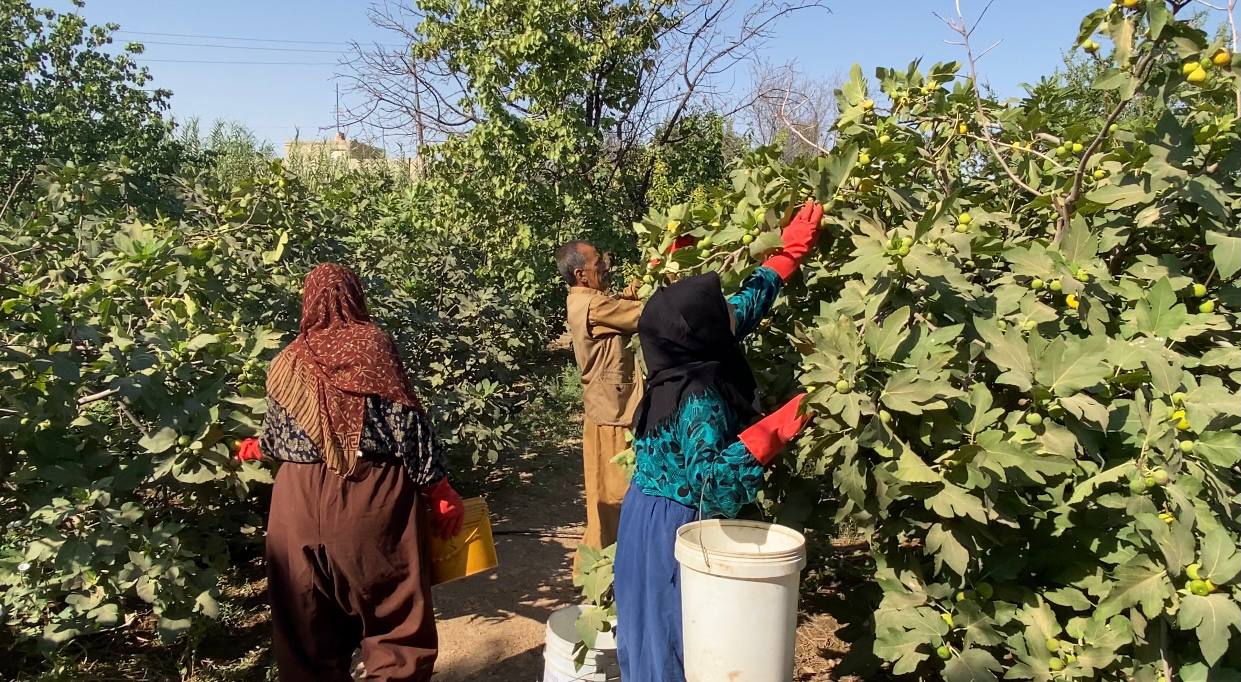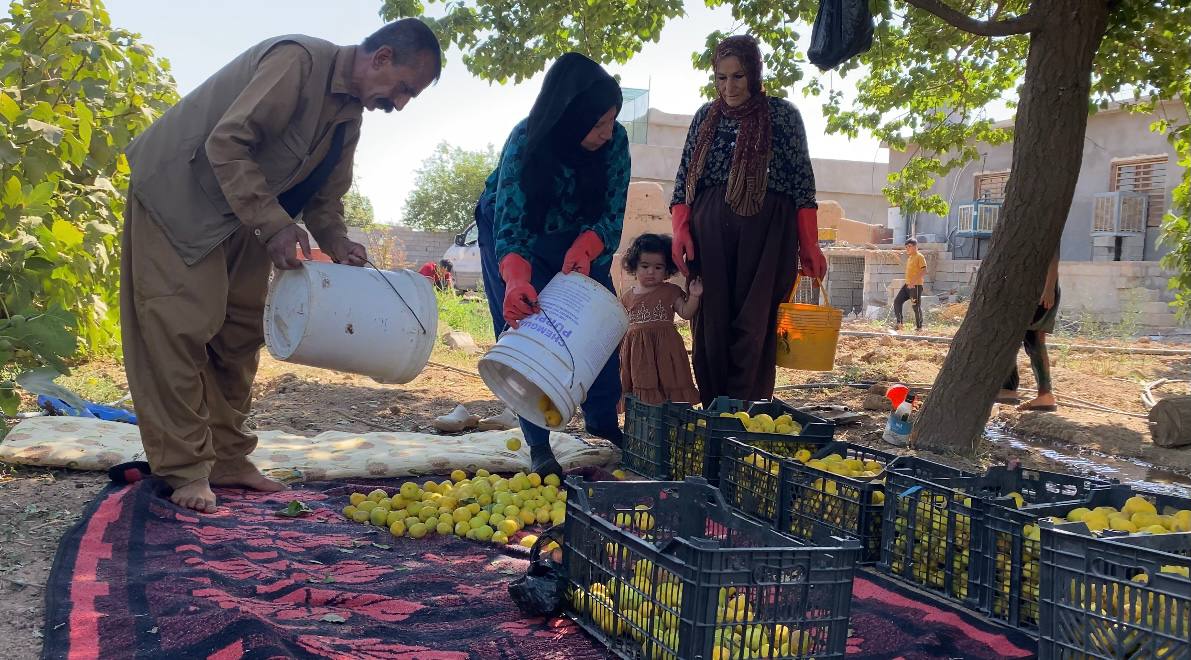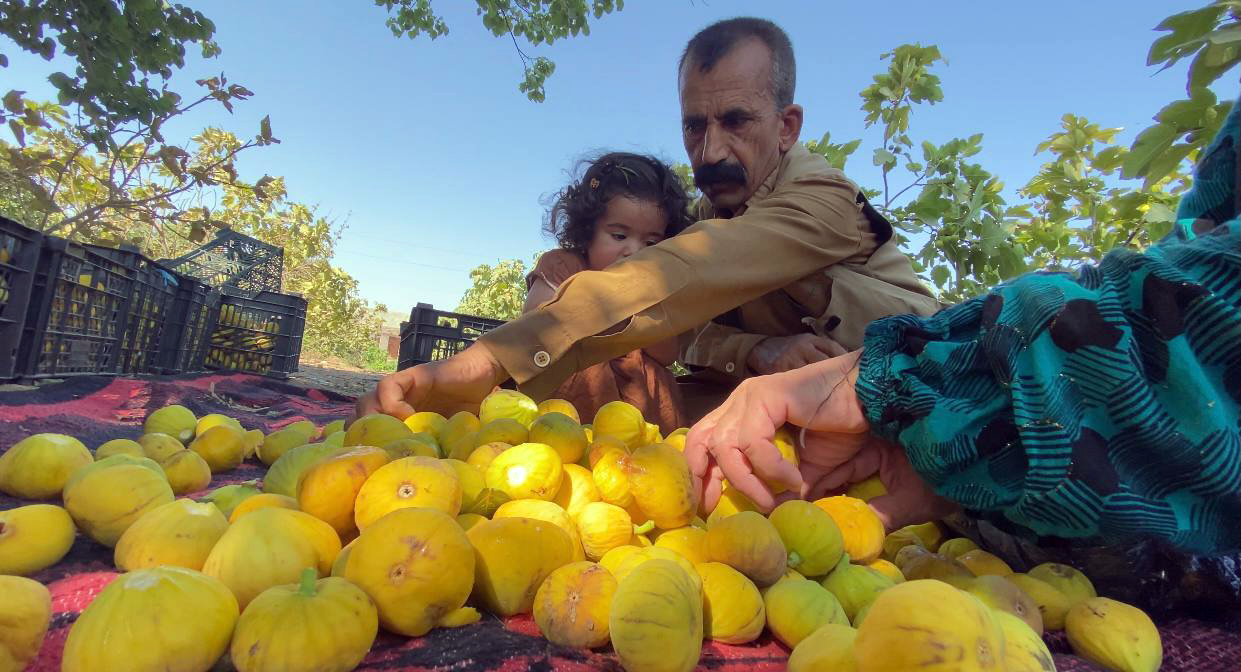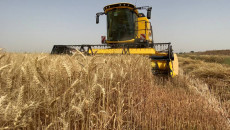The farmers of Daquq district, 44 km south west of Kirkuk northern province, harvest their reputable figs in July.
“In past years, we were making about 30 boxes of very sweet fig, each 10 kg, in 2-3 days but for this year we can make half in the same period due to draught, poor rainfall and diseases which hit our farms and orchards,” said Zahir Ahmed, 67, owner of a farm in the village of Sinur in Daquq.
Kiwekha Zahir every other day collects the figs of his farm in cooperation with his two wives and children.
Rainfall has decreased wheat and barley as well into half in Daquq.
Out of 127,000 donums cultivated for wheat and barley, 50,000 rainfed donums have not generated any products while the other 77,000 donums depending on both rainfall and ground water, Daquq agriculture said.
Kirkuk agriculture office predicted 350,000 tons of crops while in 2020 over 600,000 tons were produced as the annual plan was to plant one million donums all over the province yet only 700,000 donums were cultivated.
The oil rich-city of Kirkuk is home to about 1.2 million Kurds, Turkmen and Arabs, according to KRG figures in 2018. Kirkuk, located 238 kilometers north of Baghdad, is the center of the disputed territories where Iraqi security forces have taken control in October 2017 following the declaration of defeat of ISIS.

Kirkuk, July 2021-The family together collect the figs and put it in a 10-kg plastic box to be sent to the market of Daquq. Mohammed Almass
Daquq farmers complain they have to undertake all the process of cultivation, treatment and harvest without any support from the government.
“I have bought some pesticides in a stage but it was useless as its not the same quality as the ones the government distributes to the farmers,” Ahmed said.
He calls on the government for support in order to expand his farm where he has 250 trees of figs out of which 50 has dried up.
“Despite the poor harvest of this year compared to last year, I am still persistent on my work because its our only source of income,” Said Najiba Mohammed, wife of Ahmed.
She said they start collecting figs in the evening, later separate the good ones, put it in basked and take it to the market of Daquq where it is easily sold.
“The demand is high on our farm fig because its organic and affordable,” she said.

Kirkuk, July 2021- The figs of Daquq are reputable and demandable for its honey-sweet taste. Mohammed Almass
Zaki Hussein, a green grocer in Daquq Bazaar, said the fig of Kiwekha Zahir is famous in the Bazaar “and can be sold very fast because it has a very good taste compared to imported fig. As if it is honey, real honey not fig.”
Kiwekha Zahir plans to expand his six-donum orchard and farm but for this his eyes are toward the government to support him.
Dana Adel, in charge of green prodcuts at Daquq agriculture office said the government used to provide pesticide and fuel to the farmers each other year “but this is over as no budget is allocated for it.”
Adel is confident that Daquq soil is fertile for apricot, fig, pomegranate and grape orthacrs but the farmers are interested in planting crops.
Thee about 120 donums of fig, apricot and pomegranate in Daquq yet only 42 farms out of 53 are registered by agriculture office.
Besides, about 125 donums are allocated for wheat and barley.






